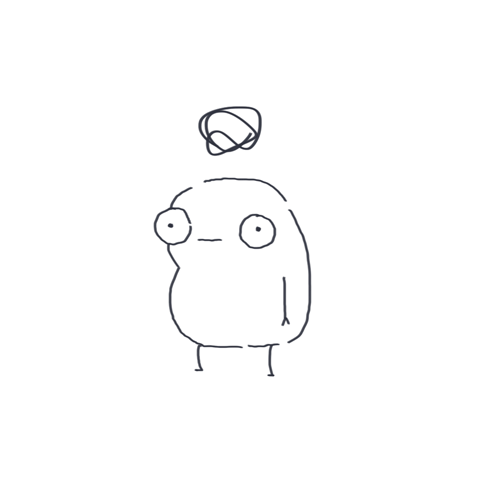For my thirteenth birthday, my mom bought me a purple, leather journal. I remember feeling slightly insulted; I thought people only bought journals as last minute gifts when they saw them on sale for $6.99 in the Barnes and Noble's check out aisle. I thanked my mom for the gift, threw it into some messy corner of my room, and forgot about it.
A few months later, I was in the midst of my first semester at my new private high school and I hadn't developed many close friendships yet. I had a lot of thoughts and feelings that I wanted to express, but I didn't have anyone I felt comfortable fully expressing them to. Around this time, I rediscovered the leather bound journal I had discarded months before. On a whim, I began writing letters in it that I addressed in a variety of ways. Some began "Dear Mom," "Dear Aaron (my crush at the time)," or "Dear Carmen (my high school best friend)." Others opened with "Dear School," "Dear Stress," "Dear God," or "Dear Lawnmowers (I hated mowing the lawn in high school)." The journal quickly became an unfiltered outlet for me to destress and gather my thoughts. I only wrote in it when I felt inclined to, but I tried to capture moments spanning a variety of different emotions.
I continued intermittently journaling through the majority of high school and into college, sometimes going over a month without an entry. I also grew away from letter-style journaling and expanded to poetry and stream-of-consciousness writing. My writing materials also graduated from my purple leather journal to a combination of platforms: scraps of paper tucked in a blue manila folder, a series of documents saved on my laptop, and various other `journals and notebooks. Over the years, I have continued journaling in a variety of forms and I have had the opportunity to look back on my old journal entries. I have since realized how beneficial it is to preserve your emotions, memories, and/or ideas in some written form. Here are 7 ways I have grown through journaling, and 7 reasons I think you will grow too if you pick up the habit!
Journaling enhances writing skills

Journaling, particularly by hand, is a practice that many educators swear will improve writing skills. The Education Bureau of Hong Kong completed a study particularly focusing on the benefits of journaling in a second language and found that journaling not only increases language competence and improves general writing skills, but also increases students' motivation to complete writing assignments and strengthens students' confidence in their writing skills.
Journaling clears your head

Sometimes when I sit down to journal, I have some sort of rant or emotional outburst that I don't want to deliver to a person, necessarily, but I still need to express in some way. Journaling is the perfect outlet for such emotional upsurges, and I often feel refreshed and validated after writing things down.
Journaling is a great way to track your mental health

Piggybacking on point #2, having a record of exactly how you felt on a certain day is an amazing way to keep track of your mental health. It gives you the ability to look back over a period of time and accurately recall your mental health in all the different states. This defies what psychologists refer to as the Mood Congruency Effect, which refers to people's likelihood to recall memories that are consistent with the mood that they are currently in. Journaling can help you get a full perspective on how your mental health has been, regardless of how it is in one particular moment.
Journaling strengthens your ability to understand and communicate your feelings and ideas with other people

Have you ever found yourself confused about an emotion that you are feeling, unable to pinpoint the exact root of it? Stream-of-consciousness journaling can help you identify where your feelings are coming from and, therefore, start you on the path to addressing them. Journaling can also be used as a way to organize thoughts that may seem chaotic. If you have a more creative mind, your multifaceted ideas may sometimes be difficult to explain. But if you write them down, even just for yourself, it can help you organize and express those ideas in another way at a later time.
Journaling allows you to reflect on how you've changed as a person over time

One of the best aspects of journaling, in my opinion, is being able to go back and reread entries from different times in your life. This is very empowering because it gives you the opportunity to reflect on obstacles you've overcome and changes that you've made in your life. You have a physical representation of how you've grown as a person over time and that can be incredibly validating.
Journaling gives you a new perspective on your current situation or past situations

Similar to #5, I often reread old entries and laugh at myself for caring so much about things that have such little importance in the long run. I've also looked back on old entries with a new perspective and realized that I was being petty or selfish. While feelings you've documented in old entries are always valid, looking back can give you the chance to look for areas of potential self-improvement. In the same way, seeing ways that you have fallen short in the past can help you address current situations differently to avoid repeating the same mistakes.
Journaling helps you remember things accurately and in detail

It is no secret that memories tend to get cloudy and even become altered over time. Having a record of what exactly happened and how it made you feel in a significant moment of your life can prevent you from creating false memories and help you recall details you may otherwise forget.
The greatest aspect of journaling is there are no limits. Journaling is a space for you to express what you want in whatever way you want, and, if you are genuine, I believe it can improve your life significantly. So, the next time you notice a sad-looking journal while standing in a check-out line, consider purchasing it.
















